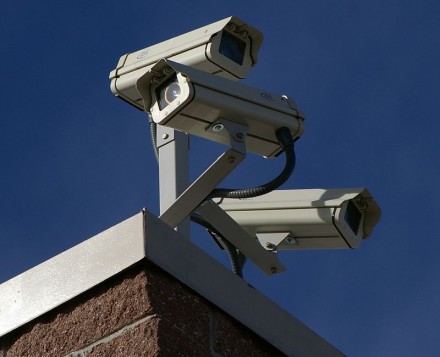Just hours after the election result was confirmed last week the Tories announced the return of the Draft Communications Data Bill, better known as the “Snooper’s Charter”. The controversial bill was previously shelved by the Coalition due to a lack of support, but with a small working majority the Tories will now seek to push it through.

The bill is likely to revive plans to require internet and mobile phone companies to store details about our personal internet browsing activity, social media use, emails, voice calls, online gaming and text messages for up to a year. If previous comments from the government can be believed, it could also ban encrypted apps that millions of people use every day such as WhatsApp.
If enacted the Snooper’s Charter would add to the already vast powers of surveillance available to the intelligence services, as exposed by Edward Snowden in 2013. Snowden revealed that GCHQ, Britain’s communications spy agency, is indiscriminately collecting personal communications data en masse. This means all of us are being caught in the surveillance net.
I’m disappointed the new government is seeking to introduce yet more surveillance powers without first having a meaningful debate about whether we’ve struck the right balance between privacy and security, and about what checks are necessary to ensure these powers aren’t misused.
A recent Intelligence and Security Committee (ISC) report claimed that an entirely new legal framework is needed to govern surveillance in this digital age. The current framework, particularly RIPA (the Regulation of Investigatory Powers Act), is out of date – written before Facebook and Twitter even existed.
Meanwhile the system of oversight and scrutiny of the intelligence services needs to be strengthened. It can’t be right, for example, that the ISC, tasked with parliamentary oversight of GCHQ, MI5, and MI6, is not chaired by an MP from the opposition party. Only an opposition MP can ensure the kind of independent scrutiny we need to hold the security services to account for any abuses of power. It is notable that the ISC didn’t even appear to know about GCHQ’s mass surveillance activities until Snowden made them public knowledge.
There are also still open debates about whether judges rather than Ministers should have power over authorising surveillance, and whether personal data about communications, such as who is sending to whom, should have the same protections with respect to privacy as the actual content.
Surely we should settle these debates and make these important changes first before we strengthen surveillance powers any further?
As the newly elected MP for Hornsey and Wood Green, I have already received concerned messages from my constituents about their worries regarding the return of the Snooper’s Charter. This is an issue that people care deeply about as they spend increasing amounts of their time online. An IPSOS-Mori poll from last year found that 68% of people are worried about the way in which the government collects data on them.
People have placed their hope in Labour for a more progressive agenda on civil liberties. So it is up to us now to give this bill the full scrutiny it needs. And we should insist on having a wider debate about improving oversight and updating the whole legal framework for surveillance at the same time.
This is important not just for our constituents but for the Labour movement itself. Labour has been at the receiving end of civil liberties infringements for decades. We know, for example, that the trade unions were infiltrated by MI5 in the 80s and that in the 90s Labour MPs and activists were spied on by the police. We are told that the new measures are to fight terrorists but without adequate safeguards we cannot guarantee that activists, trade unions and other organisations would not be the target of surveillance.
Labour can play a positive and progressive role in changing the debate around security and privacy in this country. For me, a vital part of the Labour Party’s mission is to tackle inequalities of power and hold vested interests to account. That means defending human rights and civil liberties wherever we can. With their attacks on the Human Rights Act and the return of the Snooper’s Charter, the Tories have made their position on these issues clear. It is only Labour who can stand up for this country’s citizens and their rights.
Catherine West is MP for Hornsey and Wood Green




More from LabourList
‘The hope that kills you’: Reflections from the final day in Gorton and Denton
MPs, union leaders and organisations react to ‘bruising’ Gorton and Denton result
A gory night for Labour